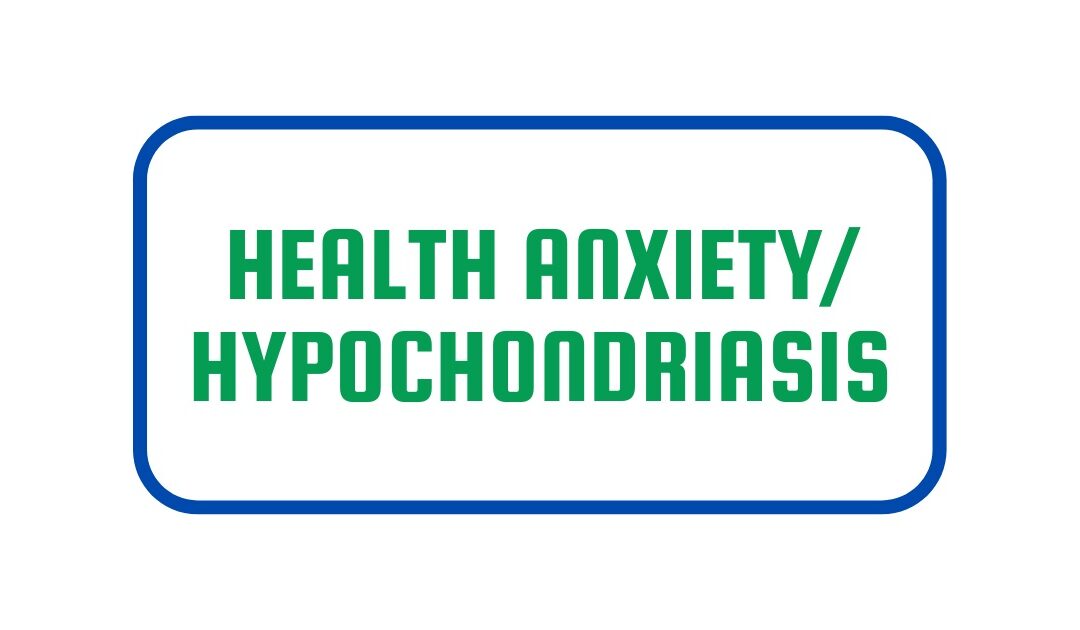What are some signs of Health Anxiety/Hypochondriasis?
Excessive worry or preoccupation with physical illness or a physical deformity. This may manifest as:
- Looking in the mirror
- Picking
- Checking the internet or medical publications for symptoms of physical health problems
- Asking family or friends for reassurance about physical functioning or appearance of the perceived deformity
- Frequently calling physicians, scheduling physician appointments, or visiting the ER to address concerns about physical health
- Visiting multiple doctors in an attempt to have health concerns addressed
- Stress and physical symptoms of anxiety, such as stomach cramping, nausea, hyperventilating, headaches, backaches, difficulty swallowing, difficulty sleeping and/or restlessness
Individuals with hypochondriasis often do have physical health problems, but the level of stress and anxiety associated around their health is often so debilitating it begins to interfere with day-to-day activities.
What is the treatment for Health Anxiety?
Both behavioral (how one acts) and cognitive (how one thinks) interventions have been shown to be effective treatment for health anxiety.
Some behavioral interventions that can help individuals manage health anxiety are:
- Exposure: where an individual is exposed to situations that increase anxiety (e.g. looking in a mirror, swallowing repeatedly) with the goal being increased tolerance to anxiety producing situations, learning that although the bodily sensations, although possibly uncomfortable, are harmless
- Response prevention: preventing the individual from doing the behaviors they normally do to manage anxiety (e.g. calling the doctor, checking symptoms online) and identifying alternative behaviors, such as relaxation or distraction
Some cognitive interventions that can help individuals manage hypochondriasis are:
Identifying and changing unhelpful or anxiety producing thoughts about health and physical functioning, such as:
- Catastrophic thinking: “If I don’t get this headache checked, I’ll die from a brain tumor” Superstitious thinking: “A garlic clove a day has prevented me from getting heart disease”
- Negatively-biased thinking: “I think the doctor missed something”
Working to restructure and change to more helpful and reassuring thoughts, which can be done by:
- Examining evidence: what is evidence for?/against?
- Distress tolerance: am I underestimating my ability to cope?
- Interpersonal interventions, such as assertiveness training, or how one asserts and communicates their own needs
- Stress management and healthy-self care, including time for relaxation, are also essential in the treatment of health anxiety
-Julie Snyder, Psy.D.
Pepperdine University

